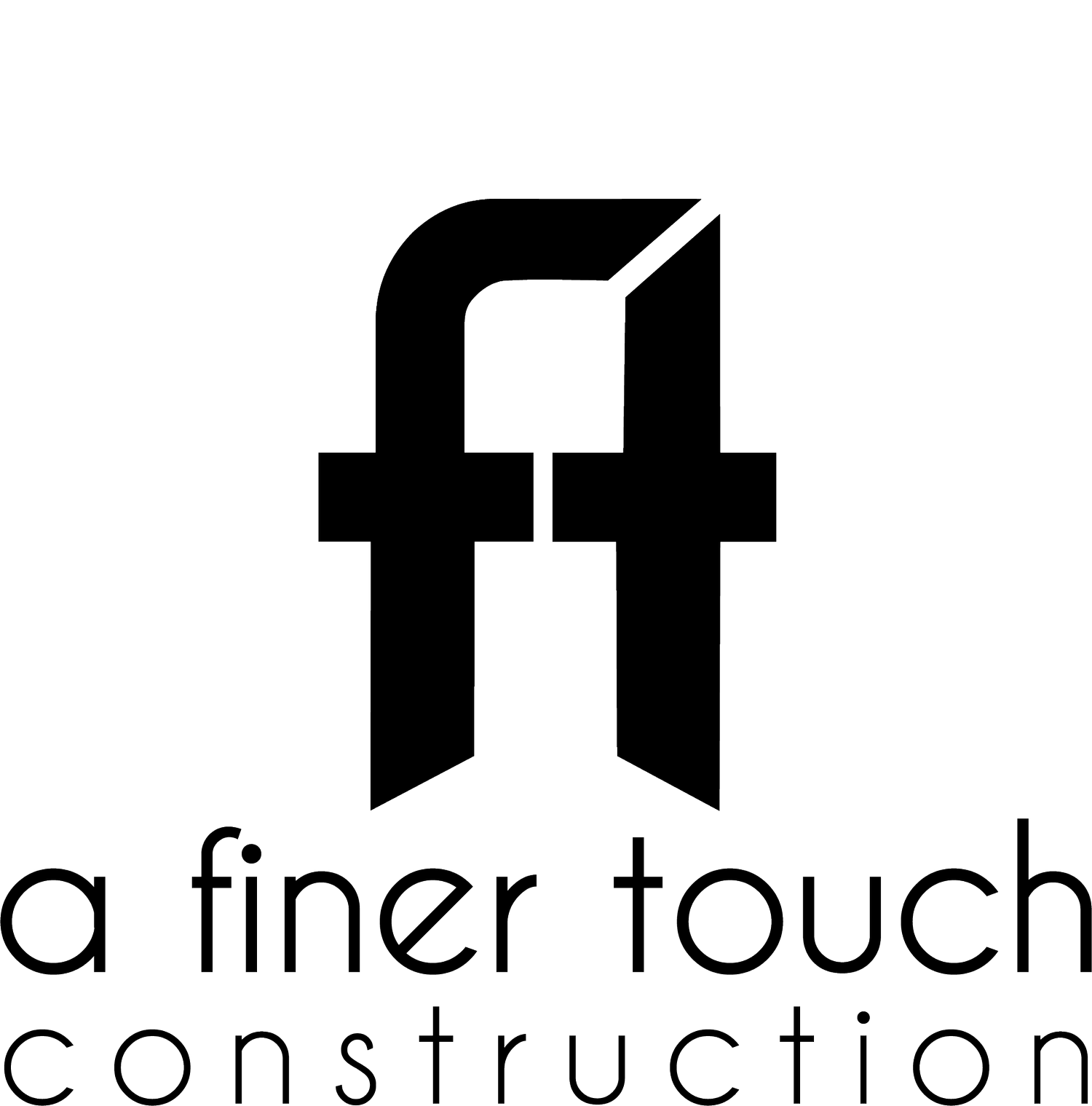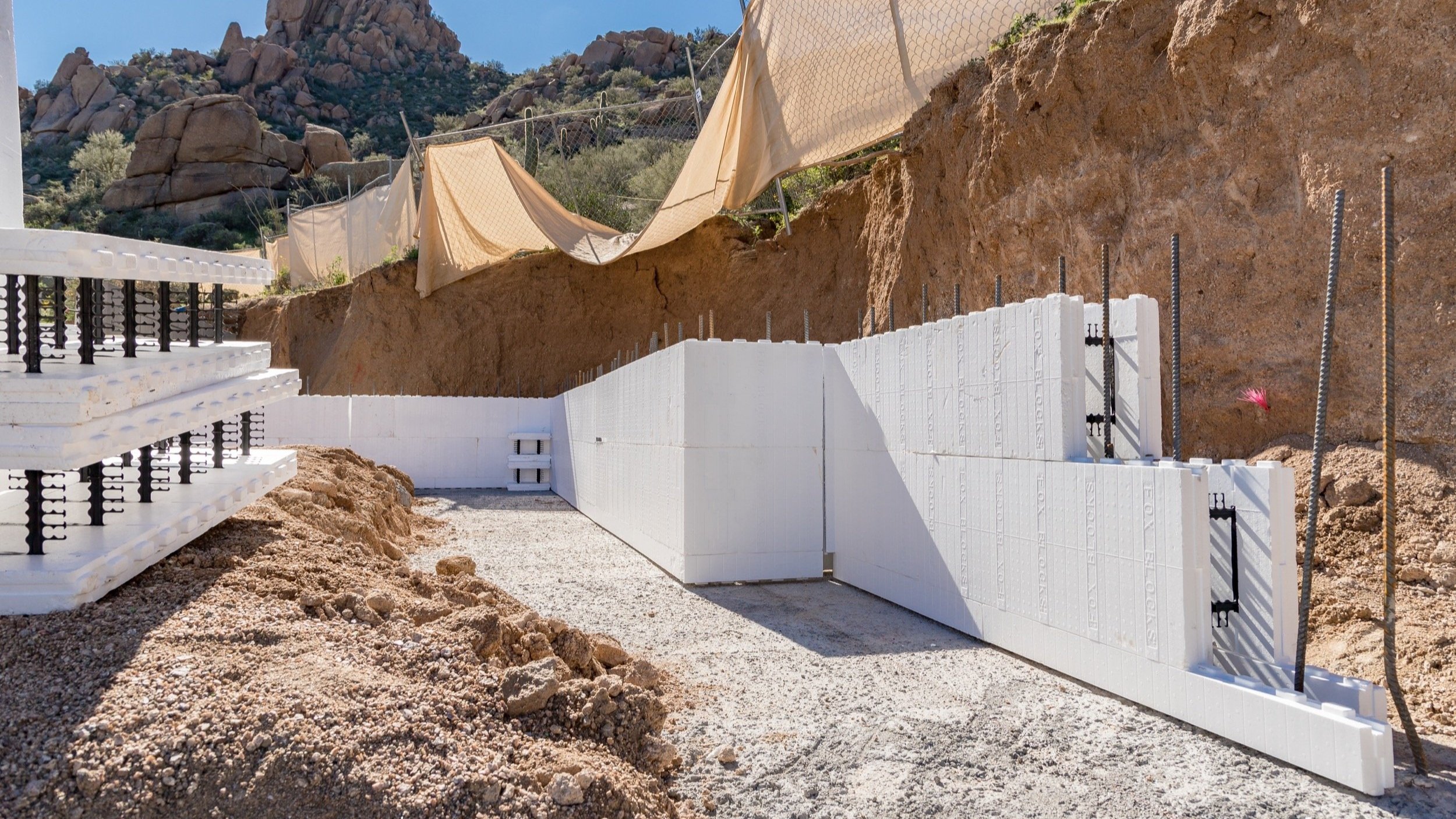Insulated Concrete Form Walls
AFT Construction recently broke ground on a new custom home in North Scottsdale that we are very excited about. One of the reasons for this excitement is we have the opportunity to use a different method of construction through the use of insulated concrete form walls or ICF walls for short. While the concept of ICF walls has been around for a number of years, they are still a relatively unknown construction method.
ICF Wall Basics
What exactly are ICF walls? The simple answer is that ICF walls are double insulated, steel reinforced concrete walls that make up the exterior walls of the structure. At the heart of ICF walls are a set of hollow pre-formed blocks made with two panels of expanded polystyrene foam connected together with a series of ties. These blocks come in a variety of shapes and sizes including straight blocks, corner blocks, and T-blocks. Additionally, the blocks are available in a variety of widths (thickness). The walls are formed by interlocking and stacking the blocks together to form the exterior walls of the structure, much like putting together a Lego set. During the ICF block installation, reinforcing steel rebar is placed along the ties located in the interior of the blocks to increase the strength of the wall when complete. Once all the blocks and reinforced steel rebar are installed, the next step is to pump concrete into the interior of the blocks. The end result is a reinforced concrete wall with insulating foam on either side. The finished ICF walls are ready for the interior and exterior finishes. For exteriors, all the traditional finishes can be used in conjunction with ICF walls, including stucco, cement siding, brick, and stone. For interior, this will most often be drywall. Depending on the application, plumbing and electrical is either placed prior to the pour or are run through the foam after the walls are poured by cutting “channels” in the foam.
ICF Wall Benefits
There are many benefits to using ICF walls instead of standard wood or steel framing. These benefits include:
Due to the expanded polystyrene foam sheets on both sides of the reinforced concrete, ICF walls provide two layers insulation, which results in a high R-value and low air infiltration rate (reduced air leakage). Additionally, the insulation provided by ICF walls is generally more consistent than with traditional wood framing, which can reduce or eliminate cold or hot spots.
ICF walls are great for providing sound insulation by allowing only 1/4 to 1/8 the amount of sound penetration compared to traditional wood framed structures.
ICF walls are much stronger than wood which means they are more disaster resistant, including wind (hurricanes), fire, and earthquake.
ICF walls are mold, mildew, rot, and insect resistant.
ICF Wall ConsiderationsWhile ICF walls provide many benefits over a traditional wood framed house, there are some considerations when deciding whether ICF is right for you, including:
Generally, the cost of construction of ICF walls is slightly higher than traditional wood framing – typically about 5-15%. However, due to the insulative properties of ICF walls, you will most likely see increased energy savings. In addition, the size of the HVAC system required may be smaller resulting immediate savings in construction costs.
Improper installation can lead to issues and additional costs. For proper installation, the concrete must be poured at the appropriate rate to avoid issues such as the concrete bursting through the foam panels. Once the concrete is poured, it is critical to ensure that all air pockets are eliminated from the concrete. Air pockets can reduce the wall strength and disaster resistance.
As with all types of construction, it will be important to ensure proper waterproofing is installed when building with ICF walls.
Conclusion
When building a new home, the use of ICF walls can provide many benefits over traditional wood or steel frame structures. Our team at AFT Construction can discuss your options and help determine whether ICF walls are the right choice for you.


